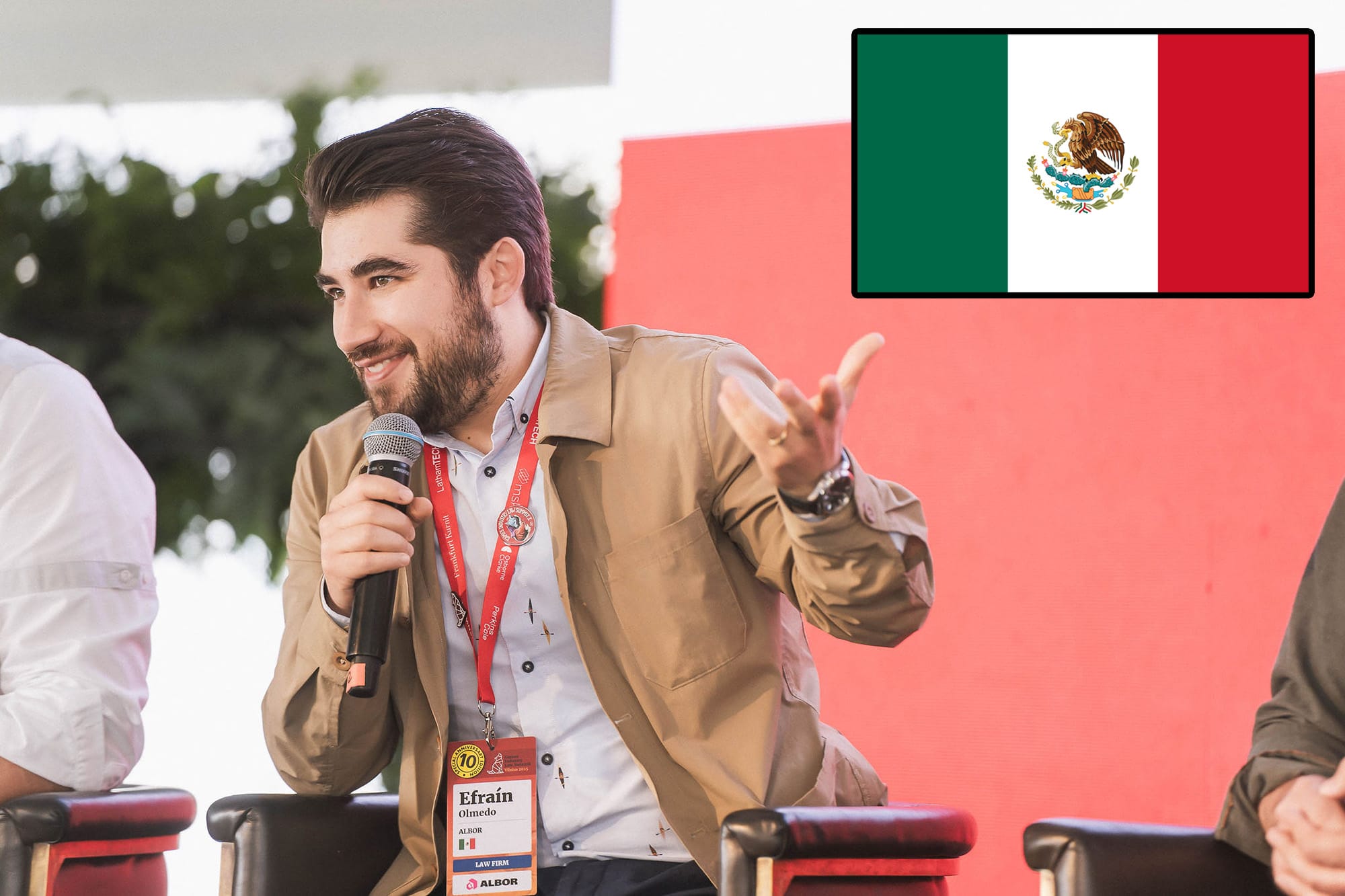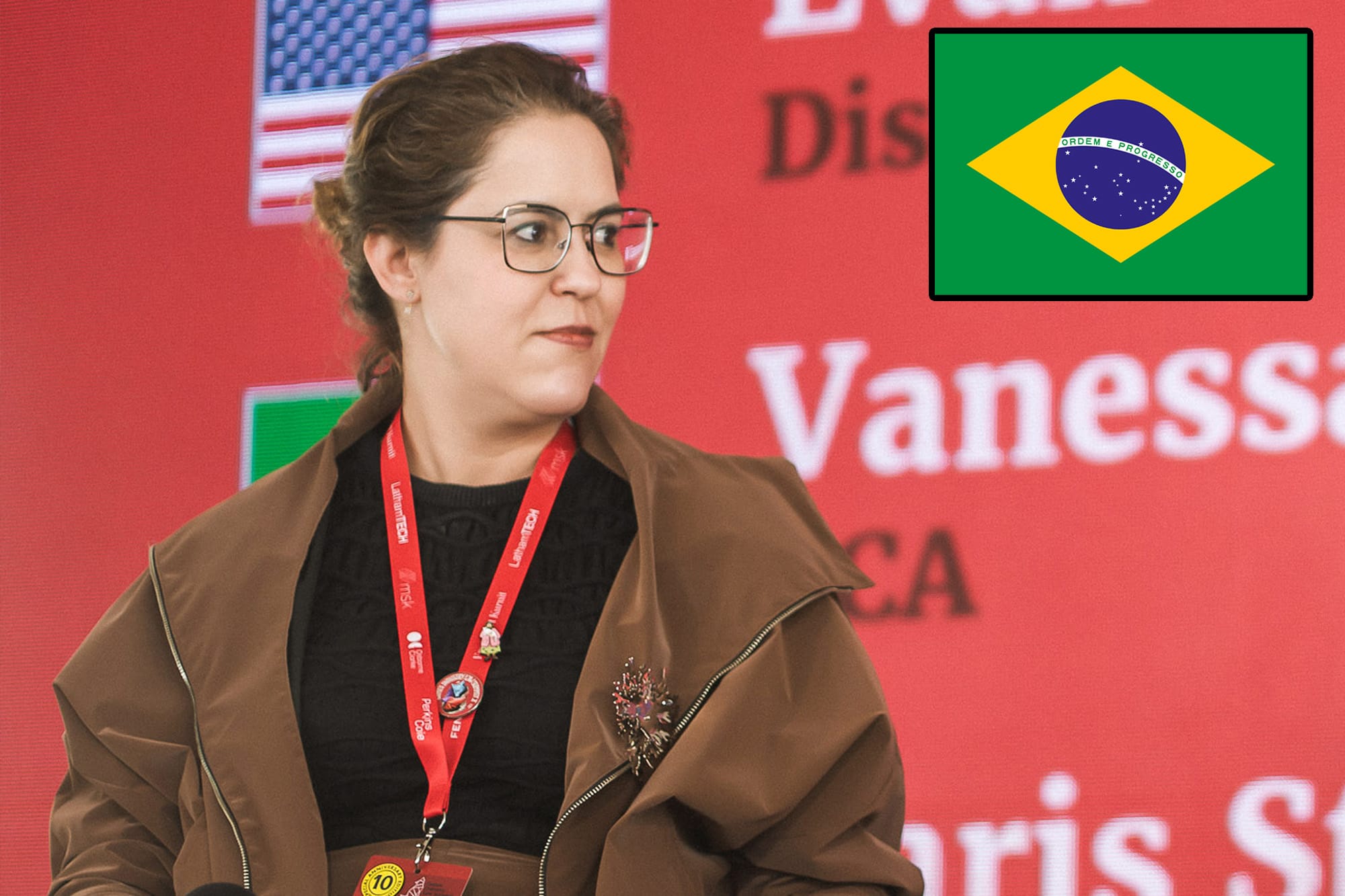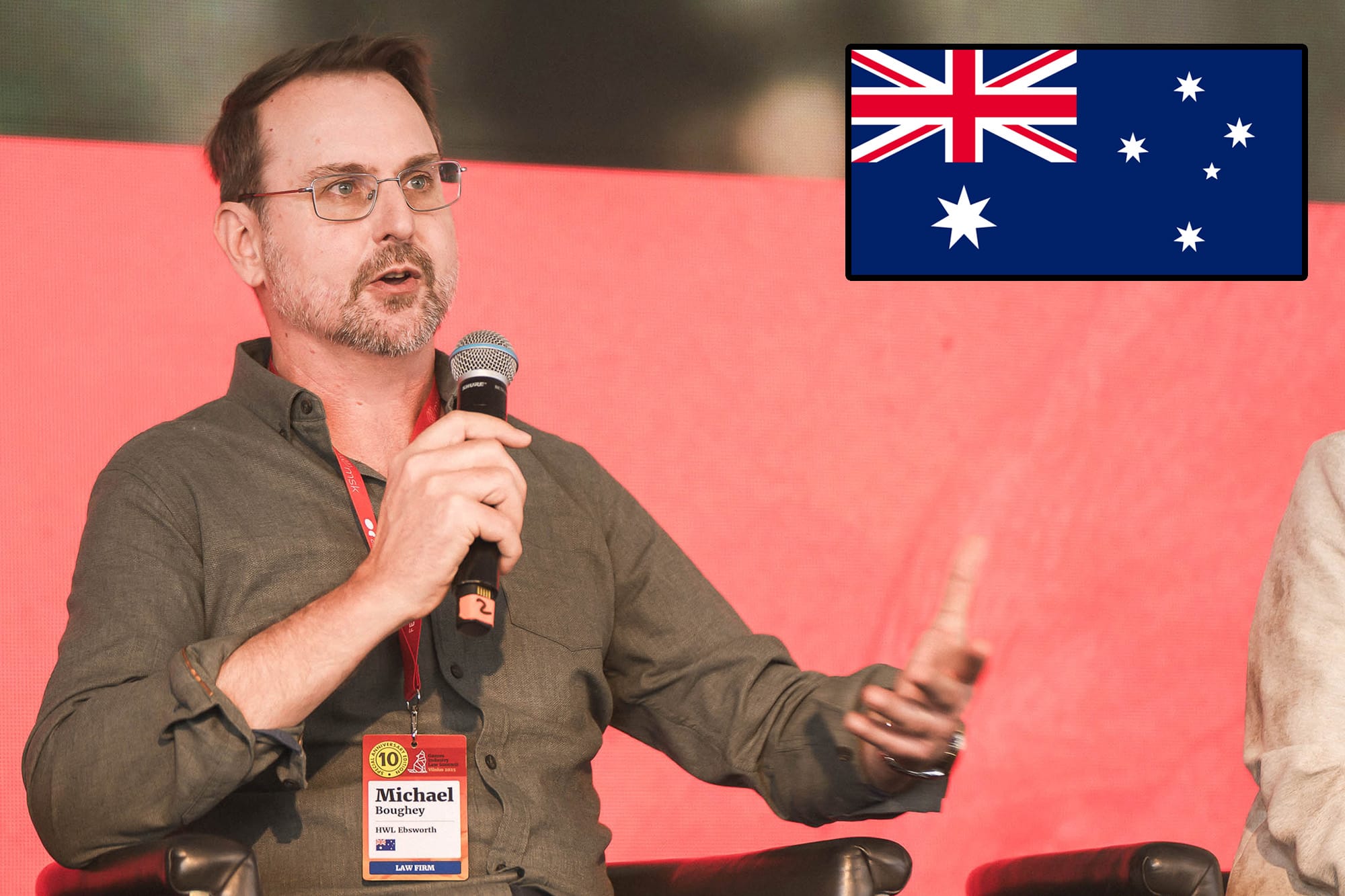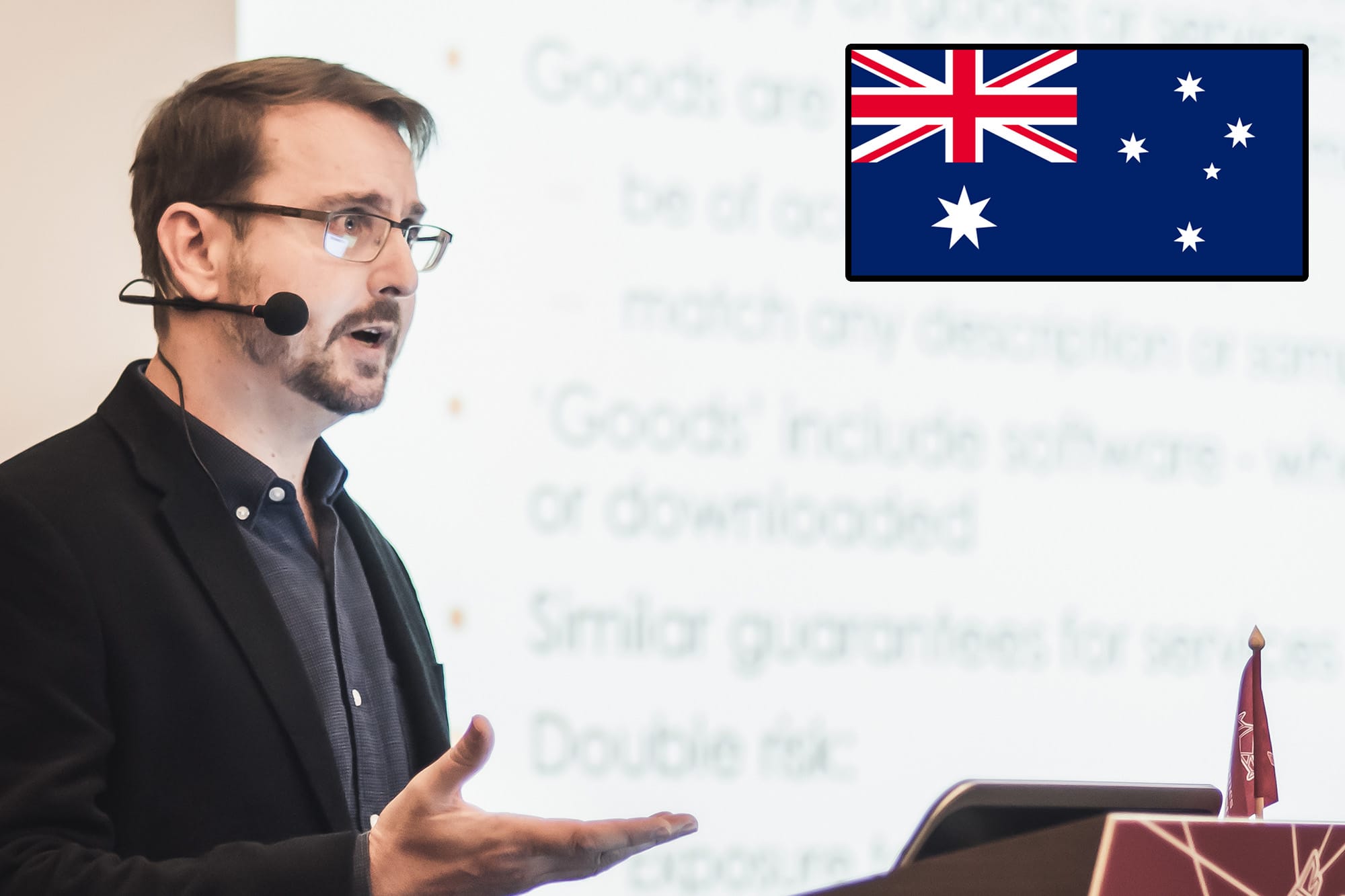RADAR: tax on violent games, decisions on Epic, studio jobs

We just wrapped the 10th edition of the Summit in Vilnius (wipes a tear). If you missed the live reporting – here's Day One and Day Two. And here's the Red Carpet gallery. The full report from the event is still in the works, and is expected to land in a week or two.
Meanwhile, something else is on the menu today – the experimental issue of RADAR, a mash-up of short updates relevant to the games industry, provided by this community's regional experts, to keep you in the loop about what's happening in their backyards.
The screenshot from the OS remake of XCOM is on the cover for a reason: like in that game, we aim to transmit a brief impulse, which you may investigate further (or not), by following the link and/or contacting the investigator on the ground. If you have similar developments in our own country, please email me and we'll include it in the next transmission.
We may have a tax issue in Mexico

From Mexico City/CDMX, reports Efraín Olmedo at ALBOR Abogados:
WHAT HAPPENED?
The executive branch proposed the expenditure law for 2026, which on the issues relevant to the games industry seeks to impose an 8% tax on “violent video games” (which are played by 25% of the Mexican players), by January 2026.
The legal structure of this tax is supported on a specialized form of tax in Mexico (Special Tax on Production and Services [IEPS]) which deals with non-traditional taxation purposes, such as the avoidance of health damaging products.
This tax is traditionally applied to tobacco, alcohol and sodas, as it works as a discourager for consumption.
Very important note for the reader: this happened just after the Summit, it is not that Efraín was not updating his legislative newsletter.
RELEVANCE TO THE GAMES INDUSTRY?
The proposed law addresses the different forms of distribution, and seeks for the tax to be applied to:
- the sale of physical copies
- the sale of digital copies
- microtransactions
- subscription models; and
- digital intermediaries
The games that fall under this proposal are the games that contain:
- intense violence, or prolonged scenes of intense violence
- bloodshed
- sexual content
- strong language; or
- bets with real money.
This is of course very subjective and at this point does not seem to be directly related to the game classification system, therefore it does not affect just a specific theme or gameplay, but instead it affects the content of the game without providing any proportionality of this content in the overall game.
This proposal also affects any company that does not have a legal entity in Mexico, as it now mandates foreign companies to be registered before the Tax Authority, designate a legal representative in Mexico for tax purposes, offer their prices including this tax, and have a register of people that receives their services.
WHAT’S NEXT?
After this proposal, the next step is for the Chamber of Representatives to approve this, which later will be approved by the Senate, most likely by the end of October.
At this point, what is possible is to lobby – as an industry – and explain to the main representatives why this is not the way to solve any of the proposed problems, and instead this will damage the industry in Mexico.
Considering how political this issue just became and the control held by the executive in both chambers, it seems unlikely that lobbying will solve this, but it is still worth trying.
The litigation solution: Once the law enters into effect, which will be January 2026, each company that has standing will be entitled to try a constitutional appeal before a District Judge and request a precautionary measure against this law and eventually obtain protection against the law.
Two very important things to know:
- An appeal in Mexico will only protect the plaintiff, and while other companies may be in the exact same situation, a decision will not protect everyone against the law. Only the company filing the appeal will be protected by that favorable decision.
- After the law enters into effect, any interested party will have 30 business days to file the appeal; if not filed during that time, then the opportunity to obtain protection is lost.
But considering this, there is time to plan and prepare a good case against this law. Here you will find the proposal (what is relevant to us you will find between pages 26 to 46; the document is in Spanish).
EDITOR'S NOTE:
If your company may be taking action, and would like to coordinate with others, you can reach Efraín at this email address. Or use one of the existing group threads for studio counsels that discuss the Relay Race, and the Berlin Zoo.
We may have new obligations in Brazil

From São Paulo, reports Vanessa Lerner at Dias Carneiro Advogados:
WHAT HAPPENED?
Bill of Law No. 2628/2022 (“Bill”) was introduced in 2022 and initially followed the ordinary legislative process in Brazil. However, in August 2025, both Houses of Congress declared the Bill urgent, largely in response to a viral video published by a Brazilian influencer. The video, which questioned the use of social media and digital platforms to exploit the images of children and adolescents, has since garnered over 48 million views and sparked widespread public outcry for stronger protections of minors online, particularly on social media. As a result, the Bill’s wording was swiftly debated and approved by Congress.
Final version of the Bill approved in Congress: Bill of Law n.º 2628/2022 (in Brazilian Portuguese).
RELEVANCE TO THE GAMES INDUSTRY?
The Bill applies to providers of information technology products or services that are directed to, or likely to be accessed by, individuals under 18 years of age. This includes both Brazilian and foreign companies involved in the development, manufacturing, distribution, commercialization, or operation of such products and/or services. Importantly, the proposal expressly states that its provisions extend to video games and Internet application stores.
The expression “likely to be accessed” is defined in the proposal as a situation in which:
- there is a sufficient probability of use and attractiveness of the product or service;
- access and use of the product or service are considerably easy; and
- the product or the service poses a significant degree of risk to privacy, security, or bio-psychosocial development, particularly in cases where social interaction and large-scale information sharing among users are possible in a digital environment.
Accordingly, any platform, including video games, that is directed to, or likely to be accessed by, minors under 18 years of age will fall within the scope of the Bill. This includes platforms such as TikTok, Roblox, Steam, and Playrix.
The Bill is particularly relevant to the games industry because, if enacted, it will introduce several new obligations for the games companies (including the prohibition of lootboxes) – obligations that did not previously exist under Brazilian law.
WHAT’S NEXT?
The Bill has not yet been enacted into law. It currently awaits presidential sanction, and the President has until September 18, 2025 to either sanction it in full or veto provisions.
If sanctioned, the new law will enter into force one year after its publication. Accordingly, no provisions will have immediate effect after its publication.
It remains unclear whether Brazilian authorities will begin enforcing the law immediately upon its entry into force, but early enforcement is likely.
Once the law takes effect, video game companies will be required to adopt the necessary measures to ensure compliance.
In light of this, companies operating in the games industry should closely monitor the Bill’s progress and begin assessing potential compliance strategies in advance to mitigate regulatory and enforcement risks.
EDITOR'S NOTE:
Vanessa runs a regional newsletter that covers the exciting developments of this 200 million+ market. To sign up, or to inquire if your studio, like Playrix, may fall under the definition of a "platform", contact Vanessa at this email.
Online Safety regulations down under

From Brisbane, Michael Boughey at HWLE Lawyers reports:
WHAT HAPPENED?
Two important developments in online safety regulation in Australia have occurred in the past week:
(a) Release of the Age Assurance Technology Trial - Final Report, including evaluations of technologies from 48 providers; and
(b) Registration of the final Phase 2 industry codes under the Online Safety Act 2021. These include the App Distribution Services Online Safety Code and the Relevant Electronic Services Code.
Code requirements include age verification/assurance mechanisms for 18+ content, particularly online pornography, high impact violence and simulated gambling.
RELEVANCE TO THE GAMES INDUSTRY?
The App Distribution Services code covers providers of platforms such as Steam and the Apple App Store.
The Relevant Electronic Services Code covers providers of multiplayer games with player to player communications functionality.
Both codes will require operators to implement age assurance measures and access control measures before providing Australian users with access to games with content that would be classified as R18+.
The Age Assurance Technology Trial report will provide important insights into how providers may meet the code requirements to implement age assurance measures 'where technically feasible and reasonably practicable'.
The codes also introduce requirements for providers to:
- conduct and document risk assessments; and
- provide online safety tools, complaint mechanisms and information, including information specifically about eSafety Australia.
App store providers will be required to have agreements with third-party app providers of high-impact apps and simulated gambling apps requiring those third-party app providers to implement their own appropriate age assurance measures and access control measures.
CONSEQUENCES/RISKS
The Australian eSafety Commissioner has a broad range of enforcement options including warnings, directions to comply, infringement notices including fines, and ultimately court proceedings seeking orders to shut down services and impose financial penalties (up to almost AUD$50M for failing to comply with a direction).
WHAT'S NEXT?
The App Distribution Services Online Safety Code and the Relevant Electronic Services Code will come into effect from 9 March 2026. App stores and providers of online games with communications functionality should ensure they are compliant with the codes by that date.
2,000 pages of Epic reading just dropped

WHAT HAPPENED?
The Australian Federal Court has published its full judgments in the proceedings by Epic Games against Apple & Google. While the outcome was announced in early August following a 16-week trial, the judgments themselves were only released this week:
Epic Games, Inc v Apple Inc [2025] FCA 900
Epic Games, Inc v Google LLC [2025] FCA 901
Combined, the judgments total almost 2,000 pages, with a separate judgement to cover representative actions by app developers.
RELEVANCE TO THE GAMES INDUSTRY?
The Court ruled in favour of Epic Games against Apple and Google, finding that both engaged in anti-competitive conduct in breach of the Australian Competition and Consumer Act 2010 by misusing their market power.
This specifically concerns their conduct in preventing or prohibiting alternative payment methods for purchasing digital in app content, and in Apple's case, preventing or prohibiting direct downloading or sideloading of apps.
The Court did not accept all of Epic Games' claims, including that Apple and Google had engaged in unconscionable conduct.
CONSEQUENCES/RISKS
The judgments only cover liability, with questions of relief stood over to another date. The Competition and Consumer Act provides for a wide range of potential remedies, including damages, injunctions, and declarations.
WHAT'S NEXT?
The parties will take time to absorb the lengthy judgments and consider the outcomes in the context of what is really a global battle, before deciding the approach to relief orders and/or whether to lodge appeals.
In the meantime, Epic Games and other developers will no doubt be exploring options to take advantage of the judgments through alternative app store and payment arrangements.
EDITOR'S NOTE:
To speak with Michael or one of his colleagues (who were helpful in sourcing off-stage expertise for Summit's panels this year), you can reach him at this email.
Legal Jobs in Games Industry

If your studio or your games-focused group at a firm has open positions, you can throw a link or a note at me, and I'll include this in the next transmission. Today we have 2 jobs for your attention:
Tripledot Studios:
Senior Regulatory / Product Compliance
Tripledot is looking for a senior regulatory/product compliance, who will get to work with Aleksander Janiszewski and Monika Gebel and Marcin Przybysz. There's no official posting yet (see? we have news before they become news!), but if you know someone who may fit the role – they can send their CV to Aleksander (the GC of Tripledot) here.
Scopely:
Director, Senior Counsel, Commercial & Corporate
Scopely is looking for a senior counsel, to be based in California, who will get to work with Hajer Boujbel and her colleagues. Full details of the position are available in this listing.
Community updates – new positions!

If you changed a job recently, or you have a friend whom you like well enough to help them celebrate, please drop us a link to the public announcement and we'll reprint. Today, our congratulations go to:
Ben Richards joins Epic Games
Ben Richards, formerly of Microsoft, is now with the Marketplaces legal team at Epic Games. Congratulations! (we also wish him good luck at the upcoming Berlin marathon!)
Eric Grouse joins The Pokémon Company International
Eric Grouse, formerly at Sony Interactive Entertainment, is now with The Pokémon Company International. 新しいお仕事おめでとうございます!
And that's it for today! If your region has legal updates that are relevant to the games industry, or you have a legal job that's games industry-focused – let us know.
Your socialist fiend and future Berliner,
Sergei at Charlie Oscar
